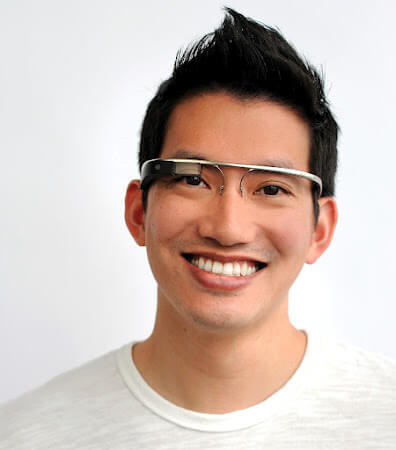Let me start by getting this out of the way: I am in no way arguing that Google Glass is entirely without privacy concerns, some of which may have to be addressed through litigation, some through private or pubic regulation (e.g. banning their use or even the wearing of them in certain settings), and some through cultural adaptation on a personal level.
That last one is often overlooked by privacy fanatics: people are remarkably good at adapting to changing privacy standards as long as their most intimate forms of privacy remain respected. Even Facebook has not destroyed privacy as much as some doomsayers feared, and frankly any popular social network has greater potential to destroy privacy than any particular consumer device. Such is the reality of the internet and yet 99.umpteen% of people manage to get by still without their privacy seriously being compromised.
However, there are several things which those who fear Glass will destroy privacy are missing in their argument, and in the process completely undermining any legitimate concern for privacy they might otherwise have been able to claim.
The first is simply that the idea of a wearable camera isn’t new. Google may be a very innovative company, but there were wearable cameras before they ever existed. Such things used to be rather expensive and indiscreet, but yes even discreet wearable cameras have existed for longer than the entire Google corporation, and have been used by news crews for undercover exposes, pornographers for POV videos, street voyeurs to film upskirt videos of unsuspecting women, etc…
As will naturally happen as technology advances, these have become ever more discreet and affordable. Simply Google “wearable camera” and look at the seemingly endless results you will find, many of them arguably much more discrete and affordable (and even better as cameras) than Glass.
So let’s be clear: singling out Google as if they invented the concept of a wearable camera is absurd. They didn’t invent it, and couldn’t put the genie back in the lamp even if they killed Project Glass tomorrow. That particular Pandora’s box was opened long ago. Glass might help popularize it more quickly, that’s all.
Indeed, Glass is not only not the most discreet wearable camera by a country mile (you’ll know someone’s wearing one the second you meet them, which is not true of all wearable cameras), but it’s less likely to attract those who want to use such technology to invade your privacy precisely because it has not been designed with that purpose in mind. If your goal with a wearable camera is to discreetly film and photograph people for nefarious purposes, Glass is probably not at the top of your list.
Which brings us to another point: discreet non-wearable cameras also exist and are far more suited to nefarious purposes. No one will use Glass to film women in public bathrooms without their knowledge, yet there is no shortage of websites devoted to that type of video. A wearable camera in general is nowhere near as likely to be used for such extremely malicious purposes. Be afraid of the camera that can be secreted away at the bottom of a toilet or in a shower or in the ceiling above the bed in your hotel room and not be noticed, far more than one someone has to be wearing in front of you to use.
In the end, it also comes down to this: the proliferation of more and more cameras in public settings is well established. There are cameras in businesses, in offices, on buses, in some cases city-wide CCTV like London, and of course also on phones, on computers, tablets and more. That trends is only likely to accelerate, but despite the endless fears of privacy advocates, in general people enjoy about as much privacy as they ever did or, at least, about as much as they want.
There are exceptions, of course, and again none of this is to say there aren’t reasons to be concerned about the proliferation of cameras in general, and especially of discreet cameras, but as I said, the problem will, for the most part, solve itself as we confront the issue individually and as a society. If anything Glass may help by forcing us to think more about this issue, because right now many people mistakenly seem to think this issue doesn’t already exist. It does.
And even in the case of someone trying to use it for nefarious purposes, being able to take relatively-discreet photos and pictures theoretically, and actually getting away with it while producing something with a high-enough quality to matter, are two different things. Glass might make some photos and videos easier, but it is not some magic camera technology that is immune to poor angles, poor focus, blurring, lens flaring, poor lighting, or general incompetence of the user. It doesn’t miraculously turn everyone into Ansel Adams.
So relax. Glass won’t kill your privacy. Not by itself, at least. You’ll likely continue to enjoy about as much privacy as you used to, and these days if you’re expecting a lot of privacy in public you’re deluding yourself anyways. As usual, most of the power over your privacy will remain in your hands and will be yours to throw away should you choose to by, say, posting every random thought you have to Facebook or Twitter or uploading that YouTube video where you sing along to Gagnam style in your jammies.
Besides, what if Google Glass flops for reasons that have nothing to do with privacy? Then it’ll look pretty silly to have freaked out about it now. Let’s at least see how that goes first, shall we?
